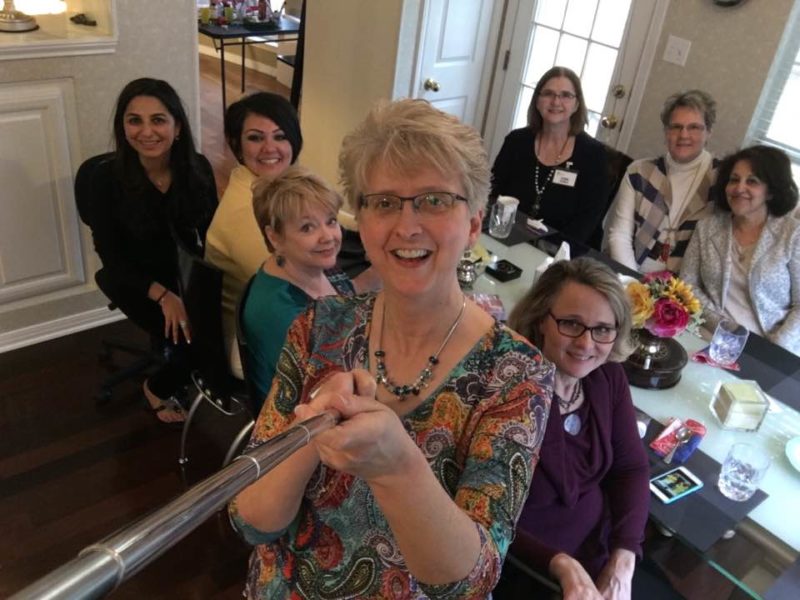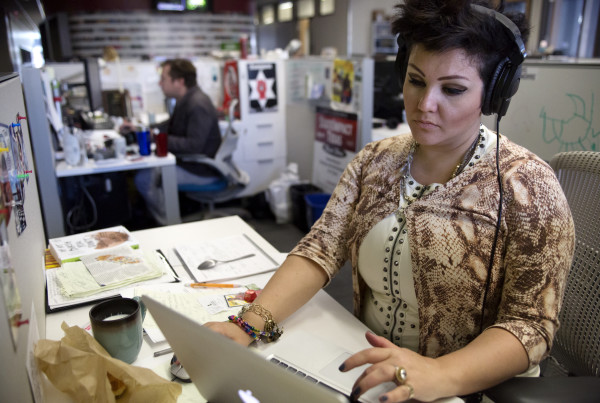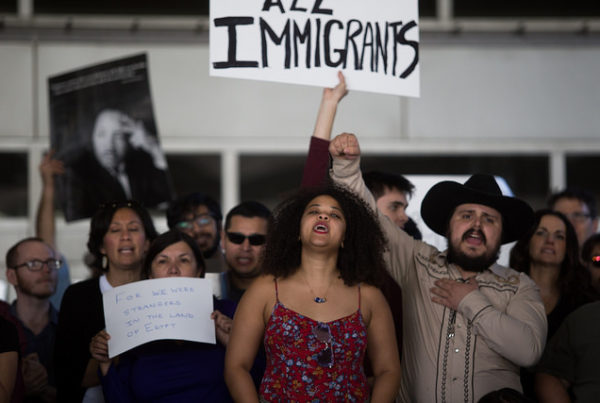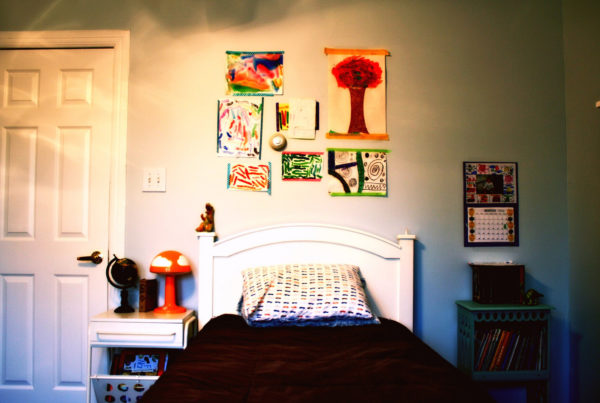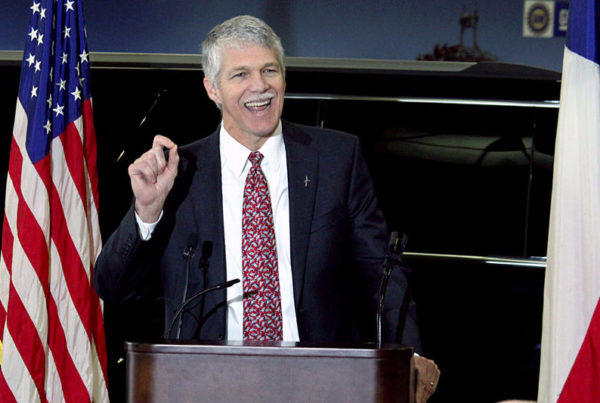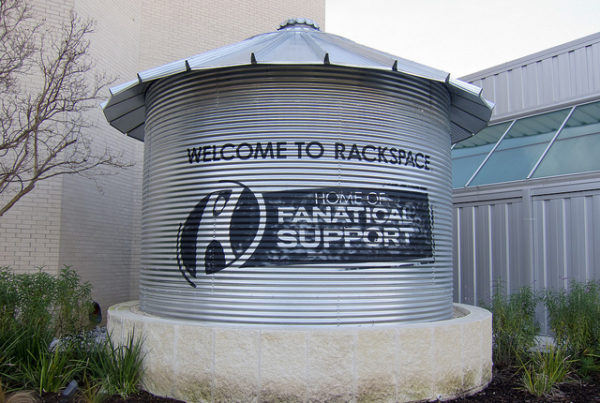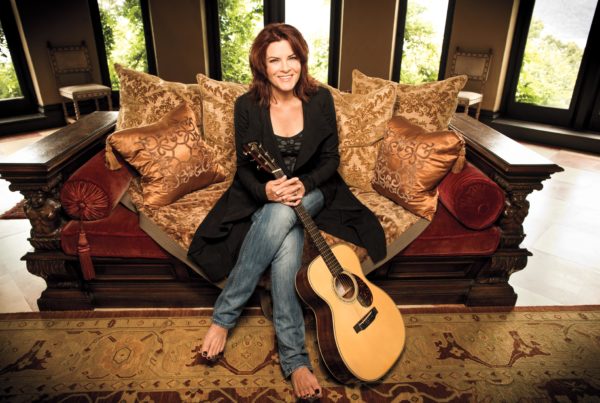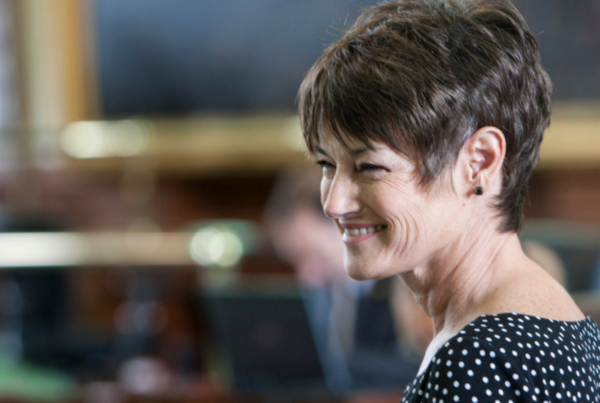It’s lunch time at the home of Sumaiya Malik, a writer and co-founder of a local non-profit. Malik says she made all the food herself.
The other women here are real estate agents, retired school principals, sociologists, high-tech start-up wives, authors, artists and human resources directors.
The menu, Malik says, is very simple. There’s rice with goat meat.
“This is the kind of salad that goes well with it,” Malik says. “That’s a mixed vegetable, that’s a kind of Tex-Mex spaghetti – because, what to do – I just like the touch of salsa with my spaghetti.”
The ladies call Malik’s food “Tex-Pak”, as in Texas-Pakistani.
Despite the lively conversation, most of these women are meeting for the first time. And they’re meeting with a purpose.
A new community center was set to open next month in Lake Travis, about 20 miles West of Austin. There was a ribbon cutting planned for the building – which was designed to look like something you’d find in Córdoba, Spain. It was adorned in Moorish architectural detail.
But the Islamic Center of Lake Travis burned to the ground in January, just before it was finished. While a mosque fire in Victoria a few weeks ago was just deemed arson – investigators have not yet finalized their findings in Lake Travis. They did say, however, the two incidents don’t seem to be connected.
Right after the Islamic Center burnt down, the community came together at an interfaith meeting. No one knew whether the center caught fire accidentally or was set on purpose. But neighbors of all faiths wanted to explicitly say to their Muslim neighbors that they are welcome in Lake Travis.
At the gathering, Malik heard a woman say she was glad to meet Muslims for the first time. Malik is Muslim. So that day, she gave out her business cards and asked those curious to learn more to meet her for lunch because she wants her neighbors to know her, not fear her.
“So, Laura, what questions would you have,” Malik says.
Author Laura Savage-Rains responds.
“I’ve been very blessed,” Savage-Rains says. “I’ve traveled in the Middle East and I’ve been in a lot of Muslim territories. But I just wanted the chance to be with you and to get to know each other as people.”
Savage-Rains and four other women of different denominations of the Christian faith ease their way into a candid chat about religion with Malik and two other Muslim women.
The questions go back and forth – politely, respectfully. The women ask questions like why is polygamy accepted by certain Muslim groups? Isn’t it also accepted by certain Christian groups?
And, why do Muslim women cover their bodies? Farida Javaid Vendal jokes there are days when she’d like to start wearing a burka. She’s almost 70 and says she would love to hide her wrinkles. Everyone gets a kick out of that.
Malik says some cultures wear burkas, others wear abayas, but she grew up wearing neither. Her sister finds it convenient to cover up, especially to save time in the mornings. That way she doesn’t need to dress up.
“She has one just for the morning school run and she’ll wear her fancy glasses … and also no need to put on makeup, and off she goes,” Malik says. “And then she comes back and she’s a mess again and she’s like ‘Freedom! Didn’t have to change!’”
Another thing they have in common!
Another woman says she does the same thing with her coat. She throws it over her pajamas and it’s ok to step out of the house.
At some point, the women get up for a few seconds and the conversation evolves into more intimate topics. One is the mother of a child with disabilities and two women can relate – they grew with siblings with disabilities. The women discover they all struggle to find the perfect black shoes, the best fitting black dress and, of course, a perfect fitting bra.
By the time the hot tea arrives and dessert is served – dumplings in honey, strawberry jello and noodles swimming in pink, sweet milk – these women are, for all intents and purposes, friends.
Terri Seifert learns the faithful in both traditions are commanded to love their neighbors, and that makes sense to her.
“It’s hard to hate somebody that you know something about and that you have a bond with,” Seifert says.
The stiffness with which the gathering started has melted away with cups of hot tea. The women exchange cell phone numbers, email addresses and hugs as they say goodbye and step out of Malik’s home into the crisp, cold afternoon with one purpose: to meet again with no agenda, with no plan, just as neighbors who truly learned to love each other.


